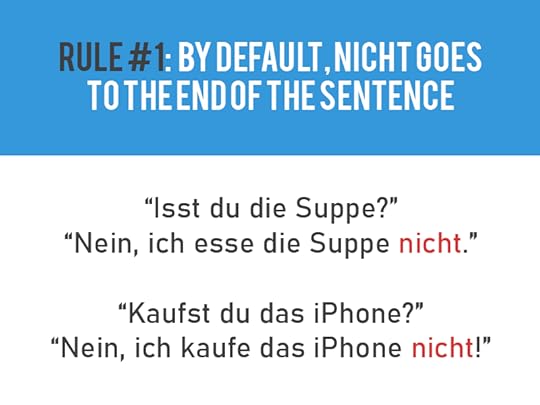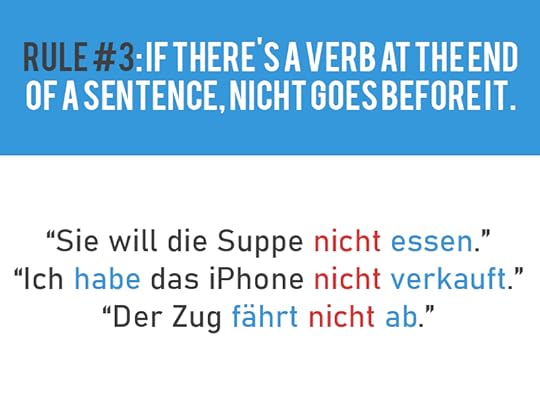André Klein's Blog, page 6
March 27, 2020
How To Start An Online Book Club

Business vector created by pikisuperstar – www.freepik.com
If there ever was a perfect time to start an online book club, this is it. Everyone is looking for inspiration, distraction, anything to feel like life as we know it continues. We finally have the time to tackle books we “always wanted to read”, so no more excuses!
Why not read a book together and establish your very own online book club? It can be a great way to help establish new healthy routines in these uncertain times, spend time with friends and entertain some new ideas. Or perhaps you’ll even read some foreign language books so that once all of this strange situation is over, you’ll emerge from your social distancing cocoon with tons of new idioms and vocab under your belt.
Here are some basic steps to get you up and running:
1. Set Up An Online Group
First of all, you need some kind of base of operations where you can organize meetings, post surveys and just hang out. The easiest way is to just set up a Facebook group. Everyone is already there, and it has tons of features. But there are alternatives: for example you could open a group on Goodreads (“the Facebook for books”) or if you want something more involved, start your own Slack or Discord channel. At the end of the day, it probably doesn’t matter that much where you build your group, as long as it’s easy for people to join.
2. Decide Which Book(s) You Want To Read
For a book club to really take off, you obviously need to agree on which book you are going to read. This can be tricky, because everyone has different tastes and preferences. How to hash this out? One good way is to just let everyone in your group suggest some titles. After you’ve collected a number of suggestions, post a survey and let the group decide. If necessary repeat this process until you’ve picked a clear “winner”.
3. Schedule Your First Meeting
Traditionally book clubs meet in cafes, libraries or living rooms, but also “virtual” meetings with video and audio need to be scheduled. It can be tricky to find a time that suits everyone, especially if your members are scattered across different time-zones. To find a good day and time, you can use a tool like Doodle, mark a few possible time slots and post it to your group. People can then mark which options are convenient for them.
4. Set Up Your Virtual Meeting Space
After you’ve got a bunch of people together, picked a book you want to read and scheduled a time for your first meeting it’s time to meet! In ideal case you’ll want to be able to hear and see all participants, but even just an audio connection may be sufficient.
Skype and Zoom are the most commonly used tools in such a scenario. But Skype can be laggy at times, and Zoom, at least in its free version, limits your sessions to 40 minutes which can get annoying quickly if you have to reboot the meeting continuously. Also in both cases you need to download the apps and/or establish accounts with these services. So I’d like to recommend another alternative today. It’s called LiveWebinar and has a very generous free plan where you can meet with up to five people in a full-fledged online meeting space with audio, video, screen sharing and other tools. Also, it runs locally in your browser, so no need to download anything or have participants register accounts. You can just send people links, even to their mobile phones, and that’s it.
Here’s how such a meeting might look like:
On the upper right you see the participants audio/video streams, a list of participants chat feeds, etc. and on the left I’ve put up screen-sharing of a book through Amazon Kindle’s Cloud Reader.
It’s quite a powerful piece of software with lots of different features and customization options. I’m not affiliated with them, by the way. I’ve simply recently helped a teacher set up an online classroom and was surprised to see how stable and convenient LiveWebinar is, especially when compared to pricey industry standards such as as Adobe Connect. Even their premium plans are quite competitive, should you want to expand your meetings.
5. Come Up With A Schedule And Reading Plan
Once you’ve got all of it set up, you need to come up with a schedule. Do you want people to read parts of the book in between meetings and then come together to discuss what you’ve read? Or do you want to read through the book together live, in your online sessions? Both approaches have their advantages. It all depends on the length of the book and how often you can meet, I’d say.
These are just some very basic guidelines of course. Have you tried it? Which tools are you using? Let me know in the comments!
–
The post How To Start An Online Book Club appeared first on LearnOutLive.
March 14, 2020
Battling Corona With Culture: Berlin Philharmonics & Viennese Opera Giving Away Free Access to Livestreams

Berliner Philharmonie Concert Hall (photo via Pixabay)
Ever wanted to visit the Berlin Philharmonic but never found the time or money? Well, now they’re coming to you, free of charge. Due to cancellations of physical events because of the coronavirus, they are now giving away free access to their Digital Concert Hall where you can watch live streams and recordings of concerts.
Simply enter coupon code BERLINPHIL by 31 March and get unrestricted access for 30 days (usually costs €14.90 per month).
Also the Wiener Staatsoper will fling its digital platform wide open starting Sunday, 15 March 2020:
They will broadcast “recordings of previous opera and ballet performances daily via its streaming platform – worldwide and free of charge. […] After registration at www.staatsoperlive.com the subscription can be booked free of charge until further notice.” –wiener-staatsoper.at
On a similar note, renowned Russian-German pianist Igor Levit has taken to doing daily Twitter concerts “From wherever I am. For as long as needed”.
— Igor Levit (@igorpianist) March 13, 2020
Meanwhile in the Elbphilarmonie in Hamburg, English singer-songwriter James Blunt performed a concert in front of eerily empty seats which was nevertheless considered a great success as viewers followed the performances through the livestream. You can watch the full concert here.

photo: magenta-musik-60.de
–
The post Battling Corona With Culture: Berlin Philharmonics & Viennese Opera Giving Away Free Access to Livestreams appeared first on LearnOutLive.
March 12, 2020
Boost Your German Vocab With This Quirky Web Game
While sorting through some old files recently (definitely not procrastination but research!) I stumbled over some old notes and re-discovered this quirky little language learning game which is just too good not to share.
It’s called Ba Ba Dum, and it’s actually five little games that run directly in your browser, no downloads required. At its heart it’s a fun and simple way to practice vocabulary and pronunciation, supporting more than 20 languages, including German!
This game is already a few years old, and nowadays Duolingo seems to be all the rage, but Ba Ba Dum is different, featuring a unique art style and high quality audio recordings. There are many “language learning games” out there, but they either fall flat because of content (how weird is Duolingo sometimes?), or clunky user experience.
In a world where everything is about sleek design, AI, automated algorithms and optimization, Ba Ba Dum is a fresh breeze of air. It almost feels like something from the mind of Michel Gondry, with that cozy DIY vibe to it and outstanding production value. I think it’s just brilliant.

But how does it work?
Here are the different game modes, as described by the developers:
Select one out of four images matching a single written word and a recorded voice reading that word.
Select one out of four images matching just a recorded voice reading the word.
Select one written word matching the displayed image.
Using given letters fill the gaps and type the word matching the displayed image.
The game features nouns, verbs, adjectives and is a great way to expand or reinforce existing vocabulary. You can also create an account to save your progress, but it’s not required.
When it first came out in 2014 Ba Ba Dum won many awards and you can tell that it’s a labor of love by Polish designer couple Aleksandra and Daniel Mizielińscy.
The post Boost Your German Vocab With This Quirky Web Game appeared first on LearnOutLive.
February 27, 2020
3 Simple Rules of German Negation: How To Position “Nicht” in A Sentence

German syntax can be quite daunting. There are many moving parts. It can be helpful to split things up into smaller more manageable bits. Earlier today for example a question came up on the newsletter about the correct placement of the so-called Negationspartikel nicht in a sentence.
So here are 3 very simple rules (and some exceptions) for putting your nicht into the correct position in a sentence. Ready? Los geht’s!
Rule #1: By Default, Nicht Goes To The End Of The Sentence

When you’re negating a verb, a noun or a whole sentence using nicht, it generally goes to the end of the sentence. This is the default setting.
Here are some examples:
“Magst du Katzen?”
“Nein, ich mag Katzen nicht.”
“Kennst du den neuen Film mit Keanu Reeves?”
“Nein, ich kenne den Film nicht.”
Simple enough, isn’t it? But this rule only comes into play as long as rule 2 or 3 don’t apply.
Rule #2: If there’s a Preposition, Nicht Goes Before It

This is another very simple rule which should be fairly self-explanatory. As you may remember, some prepositions in German require the accusative case (durch, bis, für, ohne, entlang, gegen, um, etc.), others the dative case (bei, mit, seit, aus, zu, nach, von, etc.). But they all have one thing in common: when they appear in a sentence nicht goes first.
Here are some more examples:
“Fliegst du im Sommer nach Amerika?”
“Nein, ich fliege nicht nach Amerika.”
“Fährst du entlang des Flusses?” (along the river)
“Nein, ich fahre nicht entlang des Flusses.”
There is one little exception where this rule doesn’t apply, which may not be that common, but I wanted to mentioned it anyway. If the preposition appears in position 1 in the sentence we revert to our default setting and nicht moves to the end of the sentence.
“Wartest du auf den neuen Marvel-Film?”
“Nein, auf den warte ich nicht.”
“Liegt Peter im Bett?”
“Nein, im Bett liegt er nicht.”
Last but not least, this rule also applies to modal adverbs. Whenever there’s a word in your sentence that qualifies the verb, i.e. provides information how an action is being done, nicht goes first:
“Fährt Peter langsam?”
“Nein er fährt nicht langsam.”
“Arbeitest du viel?”
“Nein, ich arbeite nicht viel.”
“Isst du gerne Pizza?”
“Nein, ich esse nicht gerne Pizza.”
Rule #3: If there’s a Verb at the End of a Sentence, Nicht Goes Before it

This may sound simple but requires a bit more explanation. Why? Because sometimes verbs consist of multiple parts that appear in different places. Remember separable verbs, i.e. “trennbare Verben”, those pesky German verbs that split in two, for example?
So let’s make this as simple as possible. Whenever there’s a verb at the end of the sentence, or even just part of a verb, put your nicht in front of it.
Here are some examples:
First of all, here’s a case where the verb at the end is in infinitive:
“Kannst du gut programmieren?”
“Nein, ich kann nicht gut programmieren.”,
Next up, here’s an example where the verb is part of the Perfekt, i.e. perfect tense. Although the complete verb form consists of two verbs (auxiliary + participle), nicht always goes in front of the part of the verb at the end:
“Hast du die Katze gesehen?”
“Nein, ich habe die Katze nicht nicht gesehen.”
The same thing happens with separable verbs, as mentioned before:
“Bringst du deinen Freund mit?” (mitbringen: to bring along)
“Nein, ich bringe meinen Freund nicht mit.”
“Bricht Sarah ihr Studium ab?” (abbrechen: to drop out)
“Nein, Sarah bricht ihr Studium nicht ab.”
Summary
It’s not always easy to analyze syntax and identify grammatical elements correctly. But if you memorize these three rules you should always be confident in placing your negation particle “nicht” exactly where it belongs.
Did you find this helpful? Would you like more explanations like these for other topics?
Just let me know!
–
.qwoty p {margin:initial;} #primary-content img {box-shadow: 1px 1px 5px #d9d9d9;}
The post 3 Simple Rules of German Negation: How To Position “Nicht” in A Sentence appeared first on LearnOutLive.
February 3, 2020
New: German Dialogues For Beginners & Intermediates (PDF, MOBI, EPUB)

Mascha Tace/Shutterstock.com
Over the past few months I’ve been thinking a lot about the power of dialogue. Whether it’s the Socratic dialogues or the Analects of Confucius, both Eastern and Western traditions have been using dialogue as a teaching tool for more than two millennia! Why is that?
Plato for example could have just doled out his ideas in dry academic prose, but instead he chose to present everything through dialogue (with Socrates as his mouthpiece), kick-starting a whole new era of philosophy and scientific inquiry in the process.
And without nerding out too much about the classics (see my Medium for that), I think there’s something very lively about these ancient writings that is largely owed to the format; there’s a certain sense of immediacy and urgency to them, even after all these years.
So on a late autumn afternoon I was wondering: what if I were to apply this time-tested format to German learning? And you might say: “But André, most textbooks already have some little conversational snippets here and there, this is hardly something new!” Well, true, but most of them don’t have any real conversational content, right? They aim to teach you a few words and phrases, but that’s it. Wouldn’t it be cool if they were actually motivating you to get into the flow of the conversation?
And thus I went ahead and started crafting a whole bunch of little narratives, peculiar characters and unlikely encounters, told through dialogue. In this book there’s a story about a weird heirloom, a neurotic’s trip to the eye doctor, a brief foray into the arcane mysteries of German train fares, and a job application gone rogue, to name just a few.
One big plus about this conversational format is that you don’t have to deal with all the grammatical technicalities of narrative German like the Präteritum for example (so many irregularities!). You can just get straight to the heart of the story. There are some small ‘stage directions’ to set the scene but all of the actual storytelling happens through talking.
After having written more than twenty story books for German learners in a more traditional narrative format, for this book I’ve also introduced a number of improvements and ‘quality of life’ updates. For the ebook edition for example, you can now easily switch between the comprehension quizzes and the answer key with special links, instead of painstakingly flipping through the pages. Also you can now find downloadable and printable flashcards and word lists at the end of the book regardless of format or platform.
I sincerely believe that all of these things combined will make for a more enjoyable and effective German learning experience.
But don’t take my word for it—try it yourself!
You can get the book on the Kindle Store, on paperback or as a direct download from our bookshop or from one of these platforms:
Apple Books
Barnes & Noble Paperback
Barnes & Noble Nook (Ebook)
Kobo
–
The post New: German Dialogues For Beginners & Intermediates (PDF, MOBI, EPUB) appeared first on LearnOutLive.
January 14, 2020
Should German Learners Use Google Translate?

When Wikipedia first became popular I remember my teachers and professors scoffing at it: “A free encyclopedia? On the Internet? Why, that can’t be good! You had better learn to use the library instead, young whippersnapper!”
And yet everyone still used it. All the time. Was (or is) it perfect? Of course not. When it comes to in-depth research nothing beats expert literature. But depending on how you use it, it can be an immensely powerful tool to look up quick factoids or get a general overview about complex topics.
I feel similarly about tools like Google Translate. Language teachers often try to dissuade students from using it, because it can make horrendous and often funny mistakes. Take the following for example, which still hasn’t been fixed:

So economics is a sub-area of economics. Got it? Well …
Do these misshaps prevent people from using it? Nope. Human beings will always use tools that make their life easier. And while Google Translate is still far from perfect, machine translation is getting better and better every day.
So the question is not whether you should or shouldn’t use it, but how and when.
Making Sense of Walls of Text
When you come across a German news article as a beginner and just hit “translate”, the learning effect is virtually zero. Sure, you may have gotten the gist of the article, but you missed out on a chance to practice your existing knowledge and extend it.
Even if you switch back and forth between the original German and the English and nod knowingly, it can be easy to mistake the seamlessness of machine translation for your own text comprehension skills.
This is also why I don’t offer complete translations in my books, because when you first read a chapter in German and then get the translation in English served on a silver platter, it’s just too tempting to skip the (often frustrating) effort to parse the German altogether or just do it half-heartedly. It’s like presenting a hungry person with a freshly baked pizza on the one hand, and a bunch of raw ingredients (flour, tomatoes, etc.) on the other. Guess what’s more atractive?
So, if you’re not in “study mode” and just quickly need to get the gist of a page, just click “translate” and you’ll get passable results. But if you really want to make progress with your grammar and vocabulary, don’t auto-translate the whole text! Here’s what you can do instead:
Take the text apart, sentence by sentence:
First, try to make sense of a sentence by yourself.
Identify its core structure (tense, mood, etc.)
Try to understand unknown words from context.
Put the first really difficult word into your translator.
Does the sentence make sense now?
No? Put the next unknown word into the translator.
Rinse and repeat until you have translated all unknown words.
In this case you’re using Google Translate like a dictionary (there are better alternatives, by the way). But what if the sentence still doesn’t make sense?
Try copying and pasting smaller groups of words into your translator.
Perhaps you can split the sentence into smaller sub-sentences?
Try and put these into your translator one by one.
Only if all of the above fails, put the whole sentence into your translator
While this process does involve more effort than just auto-translating the whole text, you’ll notice that over time it will lead to gradual increase in skill. If you take short notes while doing this process, it’ll be even more effective. Note down new words you’ve learned and strange grammatical phenomena you’ve identified. Keep a log or journal and revisit it regularly.
Letting The Machines Write For You
Next, let’s look at how you can use tools like Google Translate when composing your own texts. I won’t tell you to never use it, because I know you will use it anyway. Here are a few tips how to use it judiciously to assist you instead of blotting out your own efforts.
Let’s say you have to write an email to your employer or to a governmental institution in German. Scary, right? You don’t want to make any mistakes, so why not just write it out in English and then let Google do the heavy lifting for you?
Contrary to what I’ve said about reading, I don’t think this is necessarily an altogether terrible idea, because it will provide you with a basic structure for your letter in German.
But! And this is a big one. You should never use machine-generated German in your letter which you don’t understand, regardless of how elegant it may seem. That means that you’re going to have to audit each and every generated expression and construction carefully.
If you find something that seems strange to you, try to rewrite the English, translate it again, and see if you fully (!) understand the resulting German? No? Try again. There are so many different ways to say the same thing, that you’ll find at least one variety which will make sense, even if it uses simplified grammar.
Having said that, if the letter is important, please don’t rely on Google alone, but have a friend or acquaintance read it over before you send it.
To summarize: if you use Google Translate as a writing assistant, try to write and re-write your English original in such a way that the resulting German is on par with your actual knowledge of German, i.e. restrict yourself to using only words and grammar you would actually use yourself when speaking.
This way you’ll not only expand your awareness of varieties of expression but also gain insights how machine translation works (depending on different combinations it’ll come up with wildly different results).
Just to reiterate, I obviously don’t recommend to always use Google Translate when writing your own texts (see here for more advanced tools). But if you must use it, please use it wisely.
A Contender For Google’s Crown?
Since I’ve only mentioned Google Translate so far, I also would like to point out another machine translator called DeepL Translator which is being developed by a German company in Cologne (“Kölle alaaf!”). DeepL often provides better results when dealing with the intricacies of German than its competitors.
According to the test of multiple German news-outlets the results of DeepL are more natural sounding, less prone to error and more aware of certain nuances. I’m not affiliated with them by the way, just think it’s a cool service.
DeepL is available as a free standalone program for Windows, Mac, and Chrome extension. But you can also just use it directly on their website.
Do you use machine translation in your daily language learning routine? Let me know!
–
The post Should German Learners Use Google Translate? appeared first on LearnOutLive.
December 23, 2019
“Schlaflose Sarah”, or: How to Make an App When You Don’t Know How

Ever since I first started writing interactive fantasy fiction for German learners back in 2013 I’ve been toying with the idea of doing something similar in app form. But I had two problems. First of all, the fantasy genre wasn’t everyone’s cup of tea and also, I didn’t have the slightest clue how to program an app.
Over the last few months an idea began to take shape to do a German learning story in messenger format and once I had the core concept nailed down it became easier. I still had no clue how to go about this, but at least the goal was clear. So, I started delving deeper into the world of app development and found a workflow which seemed manageable even for someone with just a Gefährliches Halbwissen* in programming, such as myself.
To make a long story short, over an intensive couple of weeks I cobbled together bits and pieces of code, kept what worked, discarded what didn’t. And somehow it all came together in the end! The app is now live on Google Play. And you can get it for free. No ads, no in-app-shenanigans and permissions required. Plus, the whole thing doesn’t require internet access and would even work on a lonely island (if you can find a way to charge your phone, that is …)
But what does the app do?
Well, it’s all about learning German and storytelling (who would have guessed?). The story is somewhat silly and suspenseful and I don’t want to spoil anything but I do hope you’ll have as much fun playing through this experience as I had writing it.
Besides enjoying a fun little story in German this app enables you to:
listen to chat messages and practice your pronunciation
tap and translate difficult words to boost your vocabulary
do short comprehension quizzes and collect coins
UPDATE: Since many people asked for an iOS version, you can now get this on the Apple App Store as well.
What about iPhone? Ja, ich weiß …
After wading through the mess of bloated SDKs and proprietary software, I may have found a way to port this app over, but it will take some more time (and monetary commitments) to do this, so if you want to see this app on your iPhone or iPad just let me know and I’ll see what I can do.
*superficial knowledge, literally: "dangerous half-knowledge"
The post “Schlaflose Sarah”, or: How to Make an App When You Don’t Know How appeared first on LearnOutLive.
Code & Coffee, or: How to Make an App When You Don’t Know How

Ever since I first started writing interactive fiction for German learners back in 2013 I’ve been toying with the idea of doing something similar in app form. But I had two problems. First of all, I had no clue how to program an app, and the fantasy genre wasn’t everyone’s cup of tea.
Over the last few months an idea began to take shape to do a German learning story in messenger format and once I had the core concept nailed down it became easier. I started delving deeper into the world of app development and found a workflow which seemed manageable even for someone with just a Gefährliches Halbwissen* in programming, such as myself.
To make a long story short, over an intensive couple of weeks I cobbled together bits and pieces of code, kept what worked, discarded what didn’t. And somehow it all came together in the end! The app is now live on Google Play. And you can get it for free. No ads, no in-app-shenanigans and permissions required. Plus, the whole thing doesn’t require internet access and would even work on a lonely island (if you can find a way to charge your phone, that is …)
But what does the app do?
Well, it’s all about learning German and storytelling (who would have guessed?). The story is somewhat silly and suspenseful and I don’t want to spoil anything but I do hope you’ll have as much fun playing through this experience as I had writing it.
Besides enjoying a fun little story in German this app enables you to:
listen to chat messages and practice your pronunciation
tap and translate difficult words to boost your vocabulary
do short comprehension quizzes and collect coins
What about iPhone? Ja, ich weiß …
After wading through the mess of bloated SDKs and proprietary software, I may have found a way to port this app over, but it will take some more time (and monetary commitments) to do this, so if you want to see this app on your iPhone or iPad just let me know and I’ll see what I can do.
*superficial knowledge, literally: "dangerous half-knowledge"
The post Code & Coffee, or: How to Make an App When You Don’t Know How
October 13, 2019
Not Rammstein: German Music Artists Beyond The Teutonic Shtick

“Really good stuff, really hard to obtain …”
When we think of Brazilian music we think of samba, bossa nova, a cool breeze on the beach and the Girl from Ipanema. But what do you think of when you think German music? Do you think of laid-back melodies and velvety vocals? Or more industrial staccato and alveolar trills?
Whatever your particular associations may be, today I’d like to share a few German songs that are in many ways the antithesis of the type of sound commonly associated with bands like Rammstein. I’ve added both some classics and contemporary titles and some really strange stuff as well. Also you can find a link to the full albums on Spotify for a deeper dive and the lyrics below.
Ready? Put on your Kopfhörer and let’s go!
Freundeskreis – Leg dein Ohr auf die Schiene der Geschichte
 Circle of Friends – Put your Ear onto the Rail of History
Circle of Friends – Put your Ear onto the Rail of History
released: 1997
album: Quadratur des Kreises
genre: conscious rap
This song by Stuttgart hip hop group Freundeskreis, from the acclaimed album Quadratur des Kreises (squaring of the circle), was released at the start of a new wave in German hip hop, just two years after the wildly popular release by one of the founding groups of German hip hop Die fantastischen Vier (also hailing from Stuttgart) released their album Lauschgift, and one year before the Absolute Beginners‘s Bambule made Hamburg hip hop a household name.
It’s all about encouraging a general historical awareness: the remembrance of injustices, the tyrannies of war, chemical weapons, Tchernobyl etc., and it’s perhaps the song that firmly cemented Freundeskreis’ reputation as a politically and socially aware group that fused intellectual ideas with smooth grooves.
Even if you don’t like Freundeskreis’ somewhat didactical approach to storytelling (lyrics below) it’s simply a great laid-back tune.
Ich war ein ABC-Schütze in der Zeit um ’80
Man las von ABC-Geschützen in der Zeitung, ein Streit entfacht sich
I was a school starter in the time round ’80
You read about ABC weapons in the paper, a conflict is ignited
 Lyrics: Genius
Lyrics: Genius
Jan Delay – Vergiftet
 “Poisoned”
“Poisoned”
released: 2001
album: Searching for the Jan Soul Rebels
genre: reggae
After the overwhelming success of the aforementioned Hamburg hip hop group Absolute Beginners, one of their members, Jan Delay recorded a solo album which proved once and for all that reggae in German isn’t only possible, but for some strange reason sounds much better than you’d expect.
The lyrics are admittedly easier to follow than the somewhat highbrow approach of Freundeskreis, and may actually provide some good practice opportunities for German learners because the whole song follows the template of “X doesn’t like Y, because he/she/it is poisoned.” Enjoy this Gift to humanity!
Sam mag den deutschen Hip Hop nicht, denn der ist vergiftet
Und Jochen mag keine “Klingeling”, denn das ist vergiftet
Sam doesn’t like the German Hip Hop, because it’s poisoned
And Jochen doesn’t like no “ding-a-ling”, because it’s poisoned
 Lyrics: Genius
Lyrics: Genius
Eins Zwo – Die Omi aus dem ersten Stock
 “One Two – The Granny from the First Floor”
“One Two – The Granny from the First Floor”
released: 1999
album: Gefährliches Halbwissen (“Dangerous Superficial Knowledge”)
genre: rap
Since we’re reminiscing about the golden age of German hip hop around the turn of the millenium, here’s another absolute classic for you, by yet another legendary Hamburg hip hop group. It’s this heartfelt little vignette about an old lady that lives upstairs from rapper Dendemann:
Wir wohnen nicht Wand an Wand nur meine Decke ist ihr Boden
Bald im ganzen Land bekannt die Omi von oben
We don’t live wall to wall, just my floor is her ceiling
soon to be known all over the land, the granny from above
 Lyrics: Genius
Lyrics: Genius
Tua – Bettler und das Meer
 “The Beggar and The Sea”
“The Beggar and The Sea”
released: 2014
album: Stevia
genre: electronica (?)
After our stroll through the past, here’s an atmospheric track by Tua, who originally started out as a rapper as part of the group Die Orsons but soon expanded beyond the narrow confines of the genre with atmospheric textures and stream of consciousness storytelling.
Schlaf holt mich am Tag ein, wie jemand, der mir dringend noch was sagen will
Ich folge der staubigen Straße bis runter zum Meer
Nachts treffen sich alle, die ich kenne in meinem Kopf und reden gleichzeitig
Sleep catches up with me like someone who wants to tell me something urgently
I’m following the dusty road down to the sea
At night all the people I know are meeting in my head and talking simultaneously
 Lyrics: Genius
Lyrics: Genius
Antoine feat. Teddy Teclebrhan – Lohn Isch Da
 “Paycheck is Here”
“Paycheck is Here”
released: 2019
genre: rap
The Eritrean-born German comedian, actor and comic Tedros Teddy Teclebrhan first came to my awareness because of this video titled “Einbürgerungstest” (citizenship test) which was a mockumentary interview with an immigrant (played by himself as Antoine) who is generally clueless about all things German, e.g. when asked who the German chancellor is, says: “Something … Angelo? Angelo Merte?”
Some people fell for it of course and started sharing the video as proof for failed integration, while Teddy was counting clicks and giggling away. Anyhow, back to the song in question, in which Teddy raps with a Swabian accent (what do they put in the water in Stuttgart?) and horridly hilarious grammar, which I shouldn’t share with you guys. But this catchy tune about … the joy of … pay day (?) is just too good not to be shared.
Ey, Arbeitsamt hat Geld auf Konto gewiesen*, hey
Lohn isch da
Ey, unemployment office transferred money on account, hey
paycheck is here
*Correct: “Das Arbeitsamt hat Geld auf das/mein Konto überwiesen”
 Lyrics: Genius
Lyrics: Genius
.lyricsbox { margin-bottom: 1em; display: inline-block; width: 46%; vertical-align: top; font-style:italic; font-size:98%; padding-left:3%; margin-top: 12px;}
Yung Hurn – Bist du Alleine
 “Are you alone?”
“Are you alone?”
released: 2018
album: 1220
genre: cloud rap (I guess)
We’re continuing with one of the youngest artists on this list, Yung Hurn from Vienna, whose music and artistic personality divides opinion like no other. Some people say he’s a braindead addict who can barely get through a song without stuttering, others say he’s a musical genius on the level of Drake and Kanye West.
One thing that’s for sure though: the formula of Viennese accent + Autotune + sharp beats and smooth pads creates a very unique sound. When it comes to the lyrics, they are somewhat … plain. Lack of skill or sheer genius? Judge for yourself!
Sie wollen mich am Boden sehen
Sie werden mich nie verstehen
Ich will Diamanten auf mei’m Ring
Diese Zahl auf mei’m Hals, sie glänzt
They want to see me on the floor
They will never understand me
I want diamonds on my ring
This number on my neck it blings
Lyrics: Genius
Deichkind – Richtig gutes Zeug
 “Dykechild – Really good stuff”
“Dykechild – Really good stuff”
released: 2019
album: Wer sagt denn das?
Deichkind originally started out as one of the better known Hamburg hip hop groups in the late 90s. But while many of these groups got older and chucked their baggy pants, Deichkind slowly morphed into a strange Dadaist electropunk art project with infamous stage shows, outrageous costumes and the strangest music videos. Their 2019 album “Wer sagt denn das” is a brilliant (or insane?) reflection about fake news, consumerism and vapid party culture.
The song “Richtig gutes Zeug” is a persiflage on the mind-numbing consumer society of the 21st century in which we talk about common commodities as if they were holy relics from some Indiana Jonesian temple.
Richtig gutes Zeug, richtig gut
Mega schwer zu kriegen, wirklich schwer zu kriegen
Richtig gutes Zeug, richtig gut
Musst du mal ausprobier’n, ausprobier’n
Richtig gutes Zeug, richtig gut
Scheint ganz gut zu sein
Da musst du richtig lange suchen für
Richtig lange recherchier’n
Really good stuff, really good
Super difficult to obtain, really difficult to obtain
Really good stuff, really good
You gotta try this, try this
Really good stuff, really good stuff
Seems to be pretty good
You really gotta look hard for it
Research really hard
Other highlights on this album include Wer sagt denn das?, Dinge, Keine Party and if you still need to get that Teutonic fix after all, also check out their brachial hymn on the Thousand-Year-Long Empire Of Beer.
 Lyrics: Genius
Lyrics: Genius
What are your favorite German bands and songs? Add them in the comments below!
–
The post Not Rammstein: German Music Artists Beyond The Teutonic Shtick appeared first on LearnOutLive.
October 6, 2019
Café in Berlin Anniversary Sale

In 2013 I first published Café in Berlin, episode 1 of the Dino lernt Deutsch story series for beginners. Since then I’ve written 9 more episodes, recorded them as audiobooks, added flashcards and much more.
To celebrate the last six years of learning German with stories you can now get Café in Berlin on Kindle for $0.99 for a limited time only.
What are you waiting for? Get your first set of stories and delve into a whole new way of learning German effortlessly and instantly — the way it’s actually spoken!
a.textbook {display:inline-block;}
The post Café in Berlin Anniversary Sale appeared first on LearnOutLive.






